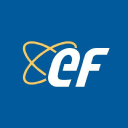Institutional Capital Endorses the Strategy: Inside Energy Fuels’ $700 Million Bet on America’s Critical Mineral Independence

Energy Fuels closed $700M convertible to fund rare earth expansion while uranium ops generate cash, positioning as only US processor of monazite with heavy rare earths.
- Energy Fuels closed a $700 million convertible bond offering, oversubscribed six to seven times, demonstrating exceptional institutional confidence and providing capital to fund the Phase 2 White Mesa expansion and the Donald project in Australia.
- The company operates the only conventional uranium mill in the United States capable of processing radioactive monazite ore, with uranium operations now cash flow positive and ramping toward two million pounds of annual production that will fund all corporate expenses without requiring ongoing equity dilution.
- Energy Fuels' strategic focus on monazite processing provides unique access to heavy rare earths (dysprosium, terbium) and samarium positioning the company to fill critical gaps in domestic rare earth supply chains where prices command premiums three to four times higher than Chinese alternatives.
- The White Mesa Mill provides operational flexibility to process either uranium (240,000 pounds per month capacity) or rare earths depending on market conditions, while partnerships with POSCO on sintered magnet blocks for electric vehicles and engagement of former General Motors personnel demonstrate tangible progress toward building an integrated non-China rare earth supply chain.
- The Donald project in Australia is fully permitted and shovel-ready with capital costs estimated at $300 million and exceptional grades of heavy rare earths, while multiple feasibility studies on Toliara, Donald, and White Mesa Phase 2 are expected by year-end, with management demonstrating a five-year track record of execution across uranium production ramp-up and rare earth infrastructure development.
Energy Fuels has emerged as a distinctly positioned player in the critical minerals sector, combining operational uranium production with an expanding rare earths and heavy mineral sands portfolio. In a market increasingly focused on supply chain security and reshoering critical mineral processing capabilities, the company represents a rare example of a producer actually generating revenue while simultaneously building out infrastructure for materials essential to defense, clean energy, and advanced manufacturing.
The recent successful completion of a $700 million convertible bond offering provides both validation of the strategy and capital to accelerate development.
CEO Mark Chalmers describes the company development,
"We are focused on building a critical mineral hub that is built around our uranium business but also includes the rare earth suite of elements including the Nd (neodymium), Pr (praseodymium), Dy (dysprosium) and Tb (terbium), and potentially samarium and also the heavy mineral sands which is the ilmenite, rutile and zircon."
The significance of Energy Fuels' model lies not in pursuing a single commodity, but in leveraging existing permitted infrastructure - particularly the White Mesa Mill in Utah - to process multiple critical minerals that share geological and processing characteristics. This approach addresses a fundamental challenge in the North American critical minerals landscape: the lack of processing capacity outside of China.
The Convertible Offering: Market Validation and Strategic Capital
The speed and terms of Energy Fuels' recent convertible bond offering signal strong institutional confidence in the company's strategy. Chalmers noted the offering was completed in a week with Goldman Sachs as sole bookrunner, and was oversubscribed 6-7 times.
"It's very rewarding that the market is saying this is a great strategy and it's getting supported by many. We're going upstream with some bigger banks and the interest as I said in the convert was extraordinary. It was oversubscribed six seven times over."
The convertible structure includes strategic features designed to limit shareholder dilution. The conversion price was set at approximately $15.35, while the company purchased capped call options with a strike price of $30.70 per share. The proceeds have defined allocation priorities. This capital deployment strategy focuses on near-term production assets rather than early-stage exploration, reflecting a bias toward execution over speculation.
Chalmers added, "The money we raised was mainly for two things: the phase two at White Mesa to build this expanded plant which is the size of Lynas, and for potential financing of the Donald project in Australia which is a joint venture we have with Astron."
The willingness of sophisticated investors to provide three-quarters of a billion dollars on such favourable terms suggests the market perceives Energy Fuels' asset base and strategy as significantly undervalued relative to near-term cash generation and strategic optionality.
Uranium Operations: The Cash Engine
Energy Fuels' uranium business represents the foundation upon which the broader critical minerals strategy is built. The company operates as the largest uranium producer in the United States, with production ramping toward two million pounds annually from 100% owned projects. Critically, these operations are now cash flow positive and self-sustaining. Chalmers emphasized:
"The uranium side of the business is self-sustaining and actually is in a turning point. We're starting to generate material cash and it'll take us [just] another couple quarters."
The White Mesa Mill, which began processing Pinyon Plain ore in early August 2025, represents the operational heart of the uranium business. The facility can process approximately 240,000 pounds of recovered uranium per month when operating. Chalmers explained the production flexibility:
"In the absence of the immediate demand for rare earth, we're going to run uranium as much as possible. And we can process about 240,000 pounds of recovered uranium per month we process. So, you can see how big that adds up as we run that mill whether we run it for 6 months or 12 months."
The White Mesa Mill's ability to switch between uranium and rare earth processing allows the company to optimise for either uranium revenue generation or rare earth production depending on market conditions and customer commitments.
The uranium production profile draws from multiple mines including Pinyon Plain, Pandora, and La Sal, with potential to restart additional underground mines and ongoing drilling at Nichols Ranch in Wyoming. From a cost perspective, Energy Fuels positions itself as one of the lowest cost producer of uranium in the United States with production ramping up. The low-cost structure derives from processing stockpiled ore and alternate feed materials that have already been mined, reducing the capital intensity compared to conventional mining operations.
Interview with President & CEO Mark Chalmers
Rare Earths Strategy: Filling Critical Supply Chain Gaps
Energy Fuels' rare earths strategy centers on processing monazite, a mineral containing uranium and rare earth elements including neodymium, praseodymium, dysprosium, terbium, and samarium. This focus on monazite represents a deliberate differentiation from MP Materials, which processes bastnaesite ore. Chalmers emphasized this distinction:
"MP focused on bastnaesite and that is a great source of rare earths but not heavies. They do not have heavies. So we're focused on monazite which contains uranium, really significant concentrations of NdPr and also has very significant concentrations of the DyTb and the samarium which are the real key missing links to these rare earth elements."
The company already operates a rare earth separation circuit at White Mesa and plans to add separation capability for heavy rare earths within the existing mill building. Looking further ahead, the Phase 2 expansion - sized comparably to Lynas' processing capacity - would significantly scale the rare earth production capability. Chalmers noted:
"We're well advanced on the feasibility study on that. And we're well advanced on getting all the documents into the state of Utah on any final approvals we need for that new facility."
Energy Fuels is also building downstream integration. The company has engaged Debra Bennethum to assist with metal, alloy, and magnet development. Partnerships with POSCO have advanced to producing sintered magnet blocks as the rare earth market has strengthened considerably. Energy Fuels' positioning on monazite addresses a critical capability gap. The radioactive components in monazite have historically deterred processors, but Energy Fuels' existing infrastructure and regulatory approvals for handling radioactive materials at White Mesa eliminate this barrier.
"We're trying to differentiate between others that we can deal with the radioactivity, recover uranium, and process monazite in the United States when nobody else can," Chalmers emphasised.
Heavy Mineral Sands: Donald Project and Australian Strategy
The Donald rare earths project in Australia represents a near-term development opportunity with attractive characteristics. Energy Fuels is earning a 49% ownership stake in the project while securing 100% of the monazite through a transfer pricing mechanism. Chalmers explained:
"We're earning into 49% ownership of Donald but we get 100% of the monazite. So it's a ilmenite, rutile, zircon project that also has monazite but we get 100% of the monazite."
Donald is fully permitted and shovel-ready, with feasibility work complete and capital costs estimated around $300 million. The project offers exceptionally high grades of heavy rare earths. Phase 1 production would deliver approximately 7,000 tons per year of monazite, providing substantial feed for Energy Fuels' processing facilities.
The Australian location offers several advantages including political stability, established mining infrastructure, and alignment with allied nation supply chains. The project can move into construction quickly pending final investment decision.
Beyond Donald, Energy Fuels holds the Toliara rare earths project in Madagascar, which is advancing through feasibility studies and permitting. The company also acquired expertise in heavy mineral sands through the Base Resources acquisition, providing personnel in Perth to support project development. Chalmers noted regarding Toliara: "we're really moving that forward for all the right reasons and it's an extraordinary project as you're aware of."
Strategic Positioning in the U.S. Supply Chain
Energy Fuels occupies a unique position as a U.S.-based company with operating infrastructure capable of processing critical minerals domestically. The White Mesa Mill is constructed, permitted, operating and represents existing capacity which distinguishes Energy Fuels in discussions around reshoreing critical mineral supply chains.
The company's strategy explicitly avoids Chinese involvement. As Chalmers states:
"You don't want your product going to China. People want non-China supply. The problem is that there's a lot of people with plans to do all this stuff, but they don't have the infrastructure and the capability of doing that."
The U.S. government's focus on critical minerals presents potential opportunities, though Energy Fuels is proceeding independently.. The successful private market financing suggests the company need not wait for government programs to advance its strategy. Recent developments around MP Materials' production agreements demonstrate government interest in supporting rare earth supply chains. Energy Fuels positions its monazite focus as complementary to MP's bastnaesite production, together addressing the full spectrum of rare earth elements needed for domestic supply security.
Execution Track Record and Operational Philosophy
Energy Fuels' management emphasises execution over promises. Chalmers characterized the company's approach:
"Some people say that we do more in one year than most people do in 10. And I think we do more in one year than most people do in 15-20. We're proud of that. We're doers. We've been playing the long game."
The rare earth infrastructure at White Mesa was built over approximately five years, representing tangible progress rather than theoretical plans. The company is simultaneously ramping uranium production, advancing multiple feasibility studies, and building partnerships across the supply chain from mining through magnets.
This operational tempo requires significant resources and effort. Chalmers acknowledged:
"I'm tired because it's a lot of work, a lot of late nights, a lot of weekends. But it's very rewarding that the market is saying this is a great strategy and it's getting supported by many."
Chalmers observed: "I think the diversification plan that we've been undertaking over the last 5 years, people are finally kind of waking up and saying, 'Wow, you know, having multiple critical elements built around the uranium business makes a lot of sense.'"
The market response to the offering indicates that larger financial institutions are recognising the company's diversification strategy's merit. The balance sheet strength following the convertible offering provides financial flexibility to maintain this execution pace without near-term financing pressure. Combined with growing uranium cash flow, Energy Fuels appears positioned to advance multiple projects simultaneously while maintaining financial discipline.
Investment Thesis for Energy Fuels
- Energy Fuels operates the only conventional uranium mill in the United States capable of processing radioactive monazite ore, creating a significant competitive moat through existing permits and infrastructure that would require competitors years and hundreds of millions of dollars to replicate.
- The company's uranium business is currently cash flow positive and ramping toward two million pounds of annual production, generating sufficient revenue to fund all corporate expenses and rare earth development without requiring ongoing equity dilution.
- Energy Fuels' focus on monazite processing provides access to heavy rare earths (dysprosium, terbium) and samarium that MP Materials' bastnaesite deposits lack, positioning the company to fill critical gaps in domestic rare earth supply chains where prices command premiums three to four times higher than Chinese alternatives.
- The recent $700 million convertible bond offering at 0.75% interest, oversubscribed six to seven times with Goldman Sachs as sole book-runner, validates the market's confidence in the company's strategy while providing capital to fund the Phase 2 White Mesa expansion and the fully-permitted Donald project in Australia.
- The White Mesa Mill's flexibility to process either uranium (240,000 pounds per month capacity) or rare earths depending on market conditions allows management to optimise revenue generation and respond dynamically to customer commitments and commodity prices.
- Partnership progress with POSCO on sintered magnet blocks being incorporated into electric vehicles in 2025, combined with engagement of former General Motors personnel for downstream integration, demonstrates tangible advancement toward building a complete non-China rare earth supply chain.
- Management's five-year track record of building rare earth processing infrastructure while simultaneously growing uranium production demonstrates execution capability across multiple fronts, with multiple feasibility studies on Toliara, Donald, and White Mesa Phase 2 expected by year-end to provide updated development economics.
Macro Thematic Analysis: The Critical Minerals Imperative
The global transition to clean energy, electrification of transportation, and modernisation of defense systems has created unprecedented demand for critical minerals precisely as geopolitical tensions have exposed dangerous supply chain vulnerabilities. China controls approximately 70% of global rare earth production and nearly 90% of rare earth processing capacity, creating strategic dependencies that Western governments increasingly view as national security risks. The rare earth elements - particularly heavy rare earths like dysprosium and terbium - are essential for high-performance permanent magnets used in electric vehicle motors, wind turbine generators, advanced weapon systems, and consumer electronics. Despite multiple government initiatives and billions in announced investments, actual operational processing capacity outside China remains minimal, with MP Materials and Lynas representing virtually the entire Western production base focused primarily on light rare earths from bastnaesite.
The uranium sector faces parallel dynamics. Following years of underinvestment after the Fukushima disaster, nuclear power is experiencing a renaissance driven by climate change concerns, energy security priorities, and growing electricity demand from data centers and artificial intelligence. The United States imports more than 90% of its uranium, with Russia and Russian-influenced Kazakhstan accounting for substantial portions of global supply. Recent U.S. legislation banning Russian uranium imports beginning in 2028 has intensified focus on domestic production capacity.
Energy Fuels sits at the intersection of these two critical minerals themes. The company's ability to process monazite - which contains both uranium and the full spectrum of rare earths including heavy rare earths - addresses supply gaps in both markets using shared infrastructure.
The market pricing for non-Chinese rare earths reflects acute supply concerns. Heavy rare earths command premiums three to four times Chinese prices, while neodymium-praseodymium has surged from $55 to approaching $90 per kilogram. These price premiums indicate that Western manufacturers are willing to pay substantially more for supply chain security and diversification away from Chinese sources.
Key Takeaway
Energy Fuels has constructed a differentiated platform in the critical minerals sector by combining cash-generating uranium operations with strategic rare earth and heavy mineral sands development. The recent $700 million convertible offering on highly favourable terms validates the strategy and provides capital to scale production capacity. The company's focus on monazite processing, existing permitted infrastructure, and integration toward magnets addresses specific gaps in North American critical mineral supply chains. For investors seeking exposure to uranium production, rare earths, and the broader critical minerals theme, Energy Fuels offers an operational platform rather than a development story, with near-term cash generation funding longer-term strategic optionality in high-priority materials.
TL;DR
Energy Fuels has secured institutional validation through a $700 million convertible offering at exceptionally favoruable terms (0.75% interest, oversubscribed 6-7x) to fund rare earth expansion while its uranium business generates self-sustaining cash flow. The company operates the only U.S. uranium mill capable of processing monazite ore containing heavy rare earths (dysprosium, terbium, samarium) that command price premiums 3-4x above Chinese alternatives—filling critical supply chain gaps that MP Materials' bastnäsite deposits cannot address. With White Mesa Mill producing 240,000 pounds of uranium monthly, the fully-permitted shovel-ready Donald project in Australia ready for construction, POSCO partnerships advancing to EV magnet production, and three feasibility studies completing by year-end, Energy Fuels offers investors operational cash generation today funding strategic positioning in critical minerals where Western governments desperately need non-Chinese supply. The company's five-year execution track record, existing permitted infrastructure that would cost competitors hundreds of millions and years to replicate, and management's demonstrated ability to simultaneously advance uranium production and rare earth development distinguish Energy Fuels as an operational platform rather than a development-stage story in the critical minerals sector.
FAQ's (AI-Generated)
Analyst's Notes




Subscribe to Our Channel
Stay Informed












































